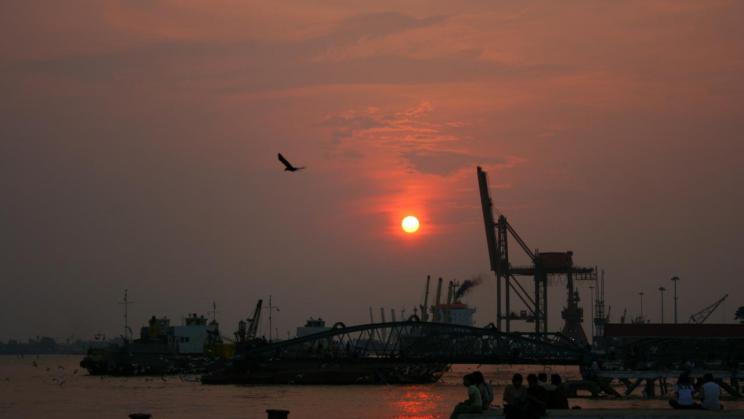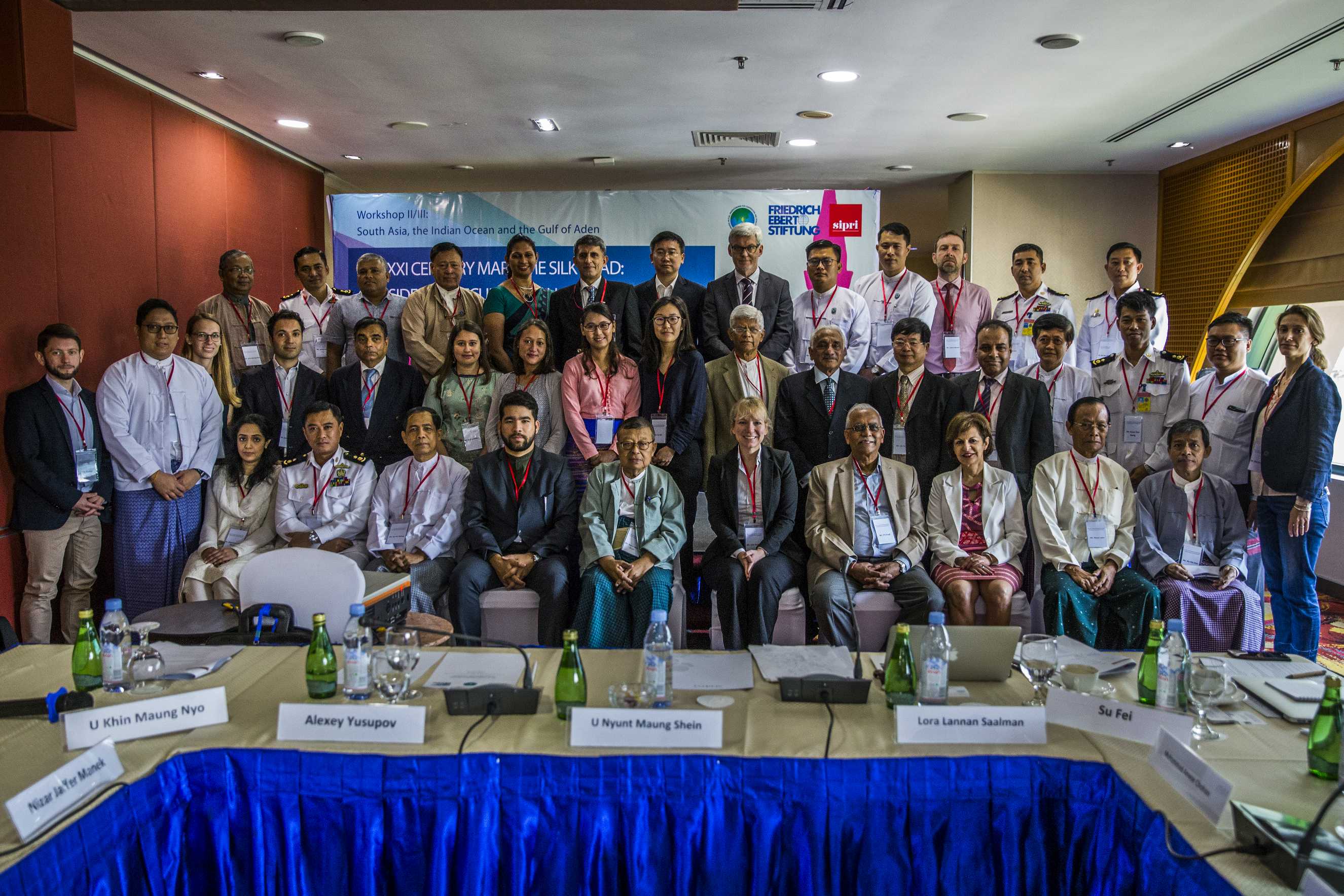
On 22-23 February, SIPRI and the Friedrich-Ebert-Stiftung (FES) hosted the second of three workshops for a joint project that examines the security implications of the 21st Century Maritime Silk Road (Road) in Yangon, Myanmar.
The workshop facilitated a discussion on how the Road has affected security dynamics in the Indian Ocean Region (IOR) to date and how it may affect dynamics over the medium and long term, particularly as it relates to the European Union’s (EU) economic and security interests in the region.
The Road is part of China’s endeavour to develop global infrastructure and stimulate political, economic and security cooperation. This workshop, held in conjunction with the Myanmar Institute of Strategic and International Studies (MISIS), focussed on South Asia and the Indian Ocean Region – from the Bay of Bengal to the Gulf of Aden and the Horn of Africa.
The workshop made clear that the IOR’s security environment is growing increasingly more complex as the number of security actors in the region increases – some of which do not necessarily have overlapping interests. It was clear in the discussions that the way forward requires much greater dialogue, coordination and transparency of military activity in the region—foremost between the key actors China and India and also the United States.
The workshop was attended by some 35 experts from South Asia, the Horn of Africa, China and the EU. From SIPRI, Su Fei, Richard Ghiasy, Dr Neil Melvin and Dr Lora Saalman participated.
The project’s public report with final findings will be available around the middle of this year.
